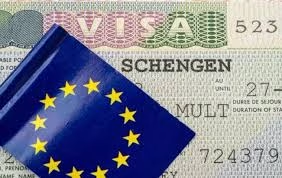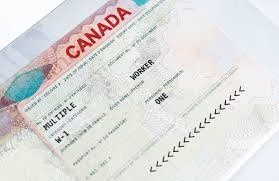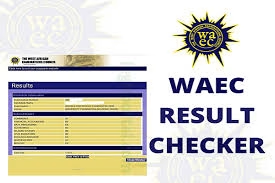
How to Get Schengen Visa Approval: A Complete Guide for Nigerians in 2025
The dream of many Nigerians to explore Europe whether for tourism, study, business, or even JAPA plans — often starts with one key document: the Schengen visa. It’s your golden ticket to 27 European countries including Spain, France, Germany, Italy, the Netherlands, and more.
But getting a Schengen visa approved from Nigeria can be a frustrating and nerve-wracking experience, especially if you don’t know how the system works. Every year, thousands of applications are rejected due to avoidable mistakes, incomplete documentation, or weak travel history.
This guide will walk you through exactly how to get a Schengen visa approval as a Nigerian in 2025 including the types of Schengen visas, required documents, top reasons for rejection, and how to increase your chances of success.
What Is a Schengen Visa?
A Schengen visa allows you to travel freely within the Schengen Area, which comprises 27 European countries that have abolished internal borders. With a single visa, you can move between France, Germany, Italy, Spain, and many more countries without extra documentation.
Why Nigerians Want the Schengen Visa
- Tourism: To explore Paris, Rome, or Barcelona.
- Business: Attending international conferences and trade expos.
- Education: Applying to European universities or language schools.
- Medical treatment: For high-end healthcare in Germany or Belgium.
- Transit: Passing through Schengen territory on the way to another country.
Types of Schengen Visas Available to Nigerians
- Short-Stay Visa (Type C) : Most common; valid for up to 90 days in any 180-day period.
- Airport Transit Visa (Type A) : For layovers in a Schengen country without entering it.
- Long-Stay Visa (Type D) : For stays over 90 days (e.g. study, work, family reunification).
For most Nigerians, the short-stay tourist or business visa is the relevant category.
Documents Required for Schengen Visa (Tourist/Visit)
To avoid rejection, ensure you submit complete and accurate documents. Here’s what you need:
- Completed Schengen visa application form
- Available online from embassy websites or VFS Global.
- International Passport
- Must be valid for at least 3 months after return date.
- At least two blank pages.
- Passport Photographs
- Two recent, colored photos with white background (35mm x 45mm).
- Travel Insurance
- Must cover €30,000 minimum.
- Covers medical emergencies and repatriation.
- Flight Reservation
- Return flight itinerary (no need to pay for tickets yet).
- Hotel Booking
- Confirmed accommodation matching your travel dates.
- Proof of Funds
- Recent 3–6 months’ bank statement (with a healthy balance).
- Payslips, employment letter, or business CAC document (if self-employed).
- Travel Itinerary
- A day-by-day plan showing where you’ll be and what you’ll do.
- Cover Letter
- Explaining your purpose of travel, duration of stay, who is sponsoring, etc.
- Visa Fee Payment Receipt
- Usually about €80 (around ₦80,000 to ₦95,000).
How Much Bank Balance Do I Need?
A general rule: €50 to €100 per day of your intended stay.
- For a 10 day stay: Minimum of €500–€1,000 (₦700k – ₦1.3M)
- Show consistent income, not just sudden deposits.
- Sponsored trip? Include sponsor’s bank statement and affidavit of support.
Where to Apply for a Schengen Visa in Nigeria
You apply through the embassy or consulate of the country where:
- You’ll spend the most days, or
- You’ll enter first if days are equally divided.
Applications in Nigeria are typically submitted via VFS Global centers in Lagos or Abuja.
Popular Embassy Locations:
- France: Lagos (VFS)
- Germany: Lagos & Abuja
- Italy: Lagos
- Spain: Abuja
Visit the VFS Global Nigeria site to confirm details and book appointments.
How Early Should You Apply?
Apply at least 30 days before your travel date, but you can apply up to 6 months in advance.
Visa processing time usually takes 15–30 working days, depending on the embassy.
Top Reasons Schengen Visa Applications from Nigerians Are Rejected
Understanding what causes rejections will help you avoid costly mistakes:
- Insufficient funds ; Bank account shows weak balance or inconsistent transactions.
- Fake documents ; Don’t forge hotel bookings, insurance, or statements.
- No strong ties to Nigeria ; No job, no business, no property means no reason to return.
- Dubious travel history ; No prior travel experience or overstaying in other countries.
- Incomplete documentation ; Missing insurance, invitation letter, etc.
- Unclear purpose of travel ; Weak or vague cover letter.
How to Increase Your Chances of Visa Approval
1. Show Strong Ties to Nigeria
This is the number one factor Schengen embassies care about. You need to prove that you have reasons to return to Nigeria:
- A steady job or business
- Family (spouse, kids, etc.)
- Property, lease, or assets
- NYSC certificate, school admission, etc.
2. Build Travel History
First-time travelers are more likely to be rejected. Consider applying for:
- Dubai (UAE) visa
- Kenya or South Africa
- UK (if possible)
It shows embassies that you travel and return.
3. Provide a Solid Bank Statement
Don’t just dump money into your account a week before. Let your account show:
- Steady income (salary or business)
- Legitimate transactions
- No bounced cheques
4. Craft a Persuasive Cover Letter
A good cover letter is like your “interview.” It should clearly answer:
- Why are you going to Europe?
- How long will you stay?
- Who’s paying for the trip?
- Why will you return to Nigeria?
5. Use Verified Travel Insurance and Bookings
Don’t risk using untrusted agents or fake bookings. It can lead to automatic blacklisting.
Should I Use an Agent?
Using an experienced and trusted agent can help with documentation and booking appointments, but beware of fraudsters.
If you must use an agent:
- Never submit fake documents.
- Be involved in the entire process.
- Cross-check all documents before submission.
Better yet, do it yourself if you’re organized.
What About Students Applying for Schengen Visa?
If you’re going to Europe for studies:
- You’ll need a Long-Stay Visa (Type D).
- Provide university admission letter, proof of accommodation, tuition fee payment, and sponsorship documents.
- Some countries like Germany require blocked accounts showing €11,208 (as of 2025).
Alternatives if You’re Denied a Schengen Visa
Don’t give up. You can:
- Appeal the decision (some countries allow this within 30 days).
- Improve your documentation and reapply after 6 months.
- Try visiting visa-free or easier countries first to build travel credibility.
Final Checklist Before Submitting Your Application
✅ Valid Passport
✅ Completed Form
✅ Passport Photos
✅ Travel Insurance
✅ Flight & Hotel Reservations
✅ Bank Statement
✅ Cover Letter
✅ Proof of Employment or Business
✅ Visa Fee Receipt
Double-check everything. One missing document can ruin your application.
WhatsnextNG Thoughts: Can Nigerians Still Get a Schengen Visa in 2025?
Yes, but only with proper planning. Gone are the days when embassies handed out visas easily. Now, you must show that you’re not a flight risk, that you can afford your trip, and that you’ll return home.
Thousands of Nigerians get their visas approved every year. If they can do it, you can too just do it right.
🔗 Related Articles on WhatsNextNG
- How to Get Canada Visa Approval from Nigeria
- Top 10 Countries Nigerian Hustlers Are Migrating To
- Is It Still Possible to JAPA in 2025?
FAQ: The Truth About Schengen Visas Nigerians Don’t Want to Hear
1. Is it true that most Schengen visa applicants from Nigeria are rejected?
Yes and it’s not racism, it’s the reality. In 2024, Nigeria had one of the highest Schengen visa rejection rates globally. Why? Too many applicants lie, forge documents, or vanish abroad after entry. So now, even genuine travelers suffer. You’re judged by the actions of others, like it or not.
2. Do embassies already assume Nigerians won’t return after visiting Europe?
Yes and that’s the default mindset. Nigerian applicants are seen as potential over-stayers, not tourists. It’s unfair, but it’s the truth. If you’re young, single, and unemployed, you’re automatically a red flag unless you prove otherwise with serious documents and ties to Nigeria.
3. Can money alone guarantee me a visa?
Absolutely not. Having ₦10 million in your account doesn’t mean anything if:
- It was dumped there overnight,
- You can’t explain how you earned it, or
- You have no clear reason to return to Nigeria.
In fact, sudden wealth raises suspicion. Embassies look for sustainability, not just a balance.
4. Do travel agents increase my chances of approval?
Only if they’re legit most are not. Too many Nigerian agents:
- Submit forged documents,
- Fabricate employment letters,
- Fake hotel and flight bookings.
When you’re caught, you’re not just rejected you’re blacklisted across Europe. If you can’t defend every document in your file, don’t apply.
5. Why do some poor applicants get approved while wealthy ones get denied?
Because visas are not granted based on how rich you look. A “poor” applicant with a real job, previous travel history, consistent bank records, and solid documentation is more trustworthy than a “big man” with suspicious deposits and no clear purpose of travel.
6. Is it true that Nigeria’s image affects my individual application?
Sadly, yes. Even if you’re 100% legit, the average Schengen visa officer sees hundreds of fake Nigerian applications every month. So the default setting is doubt first, verify later. That’s why your documentation must be bulletproof you’re proving you’re the exception.
7. Do people actually travel for tourism or just use it to JAPA?
Let’s be honest most don’t return. That’s why embassies now thoroughly vet every “tourist” or “conference” applicant. The narrative has shifted from “he’s going on vacation” to “he’s going to disappear.” Until Nigerians stop abusing short-stay visas, expect scrutiny to remain high.
8. Can I fake my way through the process and still get lucky?
Maybe but you’re playing with fire. Even if you beat the system today, you’ll be caught eventually:
- At the point of entry,
- During overstays,
- Or when you try to reapply.
And guess what? A visa blacklist from any Schengen country bans you from 26 others. Is it worth the risk?
9. Why do some people with solid documents still get denied?
Because you’re dealing with human beings, not machines. Visa officers make judgment calls. Even if your documents are perfect, a weak cover letter, nervous interview, or poor itinerary can ruin everything. This is why preparation is more than paperwork it’s presentation.
10. Is the Schengen visa system biased against Nigerians?
Yes but it’s our fault too. Years of forged documents, fake addresses, fake conferences, overstays, and asylum fraud have made Europe distrust us. So until we fix our reputation as a country, every honest Nigerian must work twice as hard for a fair shot.





